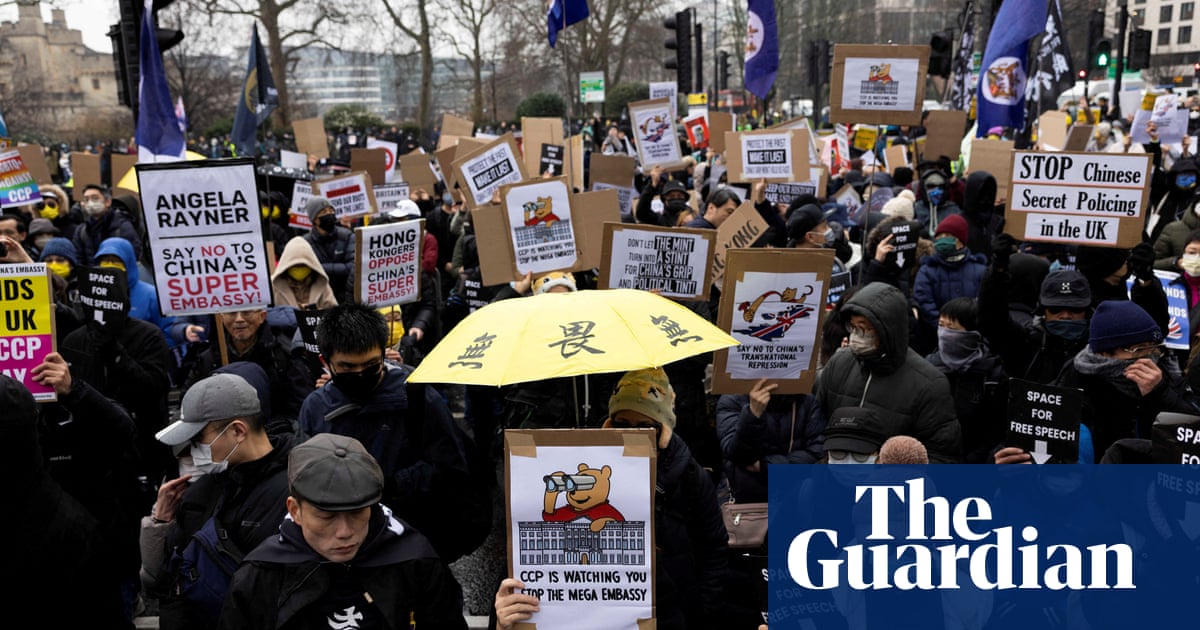When I was pregnant for the first time in 2020, I remember saying to my husband: “This country does not give a toss about the health of black people.” Why? As a pregnant woman and a sickle cell carrier, I was shocked to learn how little information is shared about this disease. Logging into pregnancy apps or reading NHS leaflets, you find an endless list of illnesses and conditions – genetic and non-genetic – that may affect your baby. Yet sickle cell was barely mentioned, despite it being the fastest-growing genetic disease in the UK.
During the pandemic, we were constantly told that those with underlying health conditions were more at risk. But sickle cell was rarely, if ever, acknowledged as one of those conditions. Sickle cell disease – which predominantly affects black people – causes red blood cells to become a sickle shape, making it difficult for them to pass through blood vessels. This leads to excruciating pain episodes, known as sickle cell crises, which can last hours, days or even weeks.
But now there are shoots of hope that maybe that tide is turning. The NHS has recently approved a groundbreaking gene therapy for sickle cell disease – a treatment that won’t just help patients manage symptoms but could cure them of this crippling illness altogether. This new treatment is being hailed as a historic moment in medical history. And for good reason.
Sickle cell affects people’s everyday lives in ways many of us never have to think about – something as simple as a change in temperature can trigger a crisis. Extreme weather conditions – being too cold or too hot – can send a patient into agonising pain. Cold weather narrows blood vessels, increasing the chances of a crisis, while extreme heat can lead to dehydration, worsening sickle cell symptoms. Many of us take these seasonal shifts for granted, but for sickle cell sufferers, winter and summer can be dangerous. Even something as routine as booking a holiday requires careful planning. What happens if you have a crisis abroad, in a country where language barriers make it hard to explain your condition? Or where doctors aren’t familiar with sickle cell and don’t know how to treat it properly?
Then there’s the workplace. Some people hide their condition from employers, fearing it will affect their chances of getting hired. And let’s not forget how sickle cell can even restrict who you can date and build a family with, as carriers and those with the full-blown disease have to consider the risk of passing it on to their children. For me, as a carrier, there was a sense of relief in knowing that my husband doesn’t have the sickle cell gene. This meant there was no chance of our children having the disease – the only possibility was that, like me, they would be carriers, which they both are. This gene therapy could eradicate these problems.
This medical breakthrough for sickle cell also represents something bigger for black people. Yes, black people have been living with sickle cell for decades, yet the medical system’s response has been shockingly slow. Unlike other conditions that receive extensive research funding and high-profile campaigns, sickle cell has always felt like an afterthought. And let’s not pretend that race doesn’t play a role in that. Black people have worse health outcomes across the board – from mental health to maternity care. Add in the fictitious and sometimes fatal belief among healthcare staff that black people have a higher pain threshold, and it becomes clearer why sickle cell has been so low on the list of medical priorities.
But does investment in this treatment signal a new dawn for the treatment of black patients? Perhaps. There is no doubt that the announcement of this new treatment for sickle cell has the potential to be a monumental step forward. But it also raises important questions and concerns. This treatment will only be truly effective if the healthcare system ensures that racial biases no longer prevent black people from accessing the medical care they deserve.
While we can’t deny the potential of this gene therapy, it is vital the people who need it will be able to have access to it. We know there is a higher concentration of black people living in London. Most sickle cell treatment centres are in London and other big cities – so what happens to those outside these areas? Will they face longer waiting times? If so, while this treatment is curing some, others will be left falling further behind simply because of where they live.
Furthermore, medical innovations need consistent funding. My hope is that the NHS remains committed to funding this life-changing gene therapy – and that financial pressures don’t lead to cuts before it reaches all who need it. For now, the approval of gene therapy brings hope. But the real test will be whether it delivers on its promise.
-
Tobi Oredein is a journalist, public speaker and the founder and CEO of Black Ballad
-
Do you have an opinion on the issues raised in this article? If you would like to submit a response of up to 300 words by email to be considered for publication in our letters section, please click here.

.png) 2 months ago
31
2 months ago
31













































